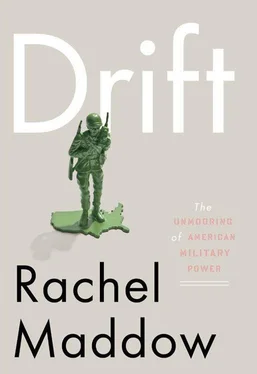Walking around this Zircon-studded neighborhood of Wazir Akbar Khan (named for the general who commanded the Afghan Army’s rout of the British in 1842), one of the weirdest things is that the roads and the sewage and trash situation are palpably worse here than in many other Kabul neighborhoods. Even torqued-up steel-frame SUVs have a hard time making it down some of these desolate streets; evasive driving techniques in Wazir Akbar Khan often have more to do with potholes than potshots. One of the bigger crossroads in the neighborhood is an ad hoc dump. Street kids are there all day, picking through the newest leavings for food and for stuff to salvage or sell.
There’s nothing all that remarkable about a rich-looking neighborhood in a poor country. What’s remarkable here is that there aren’t rich Afghan people in this rich Afghan neighborhood. Whether or not the owners of these giant houses would stand for these undrivable streets, the piles of garbage, the sewage running down the sidewalk right outside their security walls, they’re not here to see it. They’ve moved to Dubai, or to the United States, or somewhere else that’s safer for themselves and their money. (Or our money.) Most of these fancy properties in Wazir Akbar Khan were built by the Afghan elite with profits from the international influx of cash that accompanied the mostly American influx of war a decade ago—built to display status or to reap still more war dollars from the Western aid agencies and journalists and politicians and diplocrats and private contractors who need proper places to stay in the capital. The surges big and small have been good to the property barons of Wazir Akbar Khan: residential real estate values were reportedly up 75 percent in 2008 alone. Check the listings under Kabul “villas” today and you’ll find properties priced from $7,000 to $25,000 a month with specs like this: four floors, a dozen rooms, nine toilets, three big kitchens, sleeps twenty.
No one sold the American people on this incarnation of Wazir Akbar Khan as one of the desired outcomes of all those hundreds of billions of tax dollars spent in Afghanistan. But it is what we have built at Ground Zero Afghanistan. Whatever we were aiming at, this is the manifest result.
Consider also the new hundred-million-dollar wastewater treatment facility in Fallujah, Anbar Province, Iraq, which provides only spotty wastewater treatment to the people of that city. In 2004, after the US military all but demolished Fallujah in the deadliest urban battle of the Iraq War, it was decided that the way to turn the residents of the recalcitrant Sunni Triangle away from Al-Qaeda and toward their country’s fledgling government would be to build a sewage system for all of Fallujah. The initial $33 million contract was let to a South Carolina company in June 2004, while the city was still smoldering. There was no time to waste. The Bush administration’s Iraqi Reconstruction Management Office identified the sewage system as a “key national reconciliation issue.” The goal was to have it up and running by the beginning of 2006.
Nearly five years after the deadline, having clocked in at three times its initial budget, there was still not a single residence on line. Accordingly, the plan was “descoped”—scaled down—to serve just a third of the city. In the midst then of doing a third of the work for triple the money, there was talk of walking away from the project without connecting even that one-third of Fallujah residences to the aborted plant. We had built a shit-processing plant that didn’t process shit.
And it gets worse. According to a 2008 report by the Special Inspector General for Iraq Reconstruction, about 10 percent of the money paid to Iraqi subcontractors for the Fallujah project ended up in the hands of “terrorist organizations.” According to that same report, residents near two particular pump stations “[might] become angry” if the system ever did come on line, because “funding constraints” made “odor control facilities” impractical. Even households that were not part of the collection system would still be subject to what the Iraqi minister of municipalities and public works delicately called the “big stink.” The eighty-page report also noted, with dry finality, “The project file lacked any documentation to support that the provisional Iraqi government wanted this project in the first place.”
When, finally, late in 2011, seven years into the project, at a cost of $108 million, we managed to get a quarter of the homes in Fallujah hooked into that system, this partial accomplishment was not met with resounding huzzahs. “In the end it would be dubious to conclude that this project helped stabilize the city, enhanced the local citizenry’s faith in government, built local service capacity, won hearts or minds, or stimulated the economy,” the Special Inspector General said in 2011. “It is difficult to conclude that the project was worth the investment.” A hundred million American dollars, partially diverted to the groups fighting US troops, to build (poorly) a giant, unwanted wastewater-treatment project that provides nothing but the “big stink” for three-quarters of the city. No one would argue for something like this as a good use of US tax dollars. But it is in fact what we bought.
Here at home, according to an exhaustive and impressive two-year-long investigation by the Washington Post , the taxpayer-funded Global War on Terror also built enough ultra-high-security office space (Sensitive Compartmentalized Information Facilities, or SCIF, in bureaucrat-speak) to fill twenty-two US Capitol Buildings: seventeen million square feet of offices in thirty-three handsome and generously funded new complexes powered up twenty-four hours a day, where an army of nearly one million American professionals spies on the world and the homeland. It’s as if we turned the entire working population of Detroit and Milwaukee into high-security-clearance spooks and analysts.
The spy boom has been a beautiful windfall for architects, construction companies, IT specialists, and above all defense contractors, enriching thousands of private companies and dozens of local economies hugging the Capital Beltway. All those SCIFs and the rest of the government-contractor gravy train have made suburban Washington, DC, home to six of the ten wealthiest counties in America. Falls Church, Loudoun County, and Fairfax County in Virginia are one, two, and three. Goodbye, Nassau County, New York. Take that, Oyster Bay.
The crown jewel of this sprawling intelligopolis is Liberty Crossing, in the Virginia suburbs of Washington—an 850,000-square-foot (and growing) complex that houses the National Counterterrorism Center. The agency was created and funded in 2004 because, despite spending $30 billion on intelligence before 9/11, the various spy agencies in our country did not talk to one another. So the $30 billion annual intelligence budget was boosted by 250 percent, and with that increase we built ourselves a clean, well-lighted edifice, concealed by GPS jammers and reflective windows, where intelligence collected by 1,271 government agencies and 1,931 private companies under government contract is supposedly coordinated.
It is a big, big idea, and perhaps necessary—the financial commitment to it implies at least that we think it is. But it turns out Liberty Crossing is a bureaucratic haystack into which the now even more vast intelligence community tosses its shiniest needles. When a businessman relayed to CIA agents in Nigeria that his son seemed to be under the spell of terrorists and had gone to Yemen, perhaps for training, that duly reported needle got sucked into the fifty-thousand-reports-per-year haystack, only to be discovered after Umar Farouk Abdulmutallab boarded a Northwest Airlines flight from Amsterdam to Detroit and tried to set off a bomb he’d stuffed into his underpants. “The complexity of this system defies description,” a retired Army lieutenant general and intelligence specialist told the Post reporters. “We can’t effectively assess whether it’s making us more safe.”
Читать дальше












